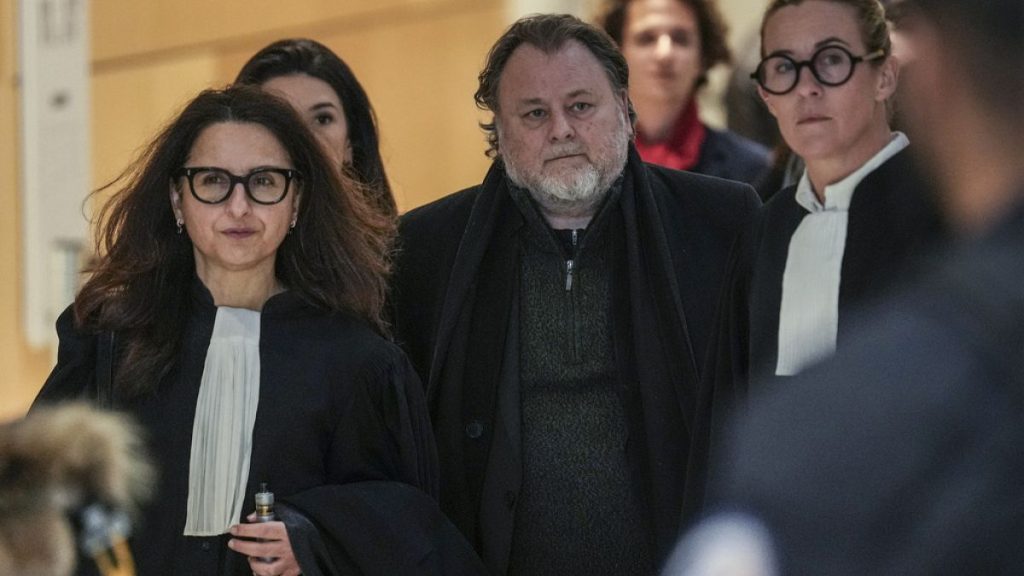The French film industry experienced a seismic shift in 2019 when prominent actress Adèle Haenel publicly accused director Christophe Ruggia of sexually assaulting her during her adolescence. The accusations stemmed from Haenel’s experience filming “The Devils” (Les Diables) in 2002 under Ruggia’s direction, where she, at the ages of 12 to 15, portrayed a young girl with autism. Haenel’s brave revelation marked a turning point in France’s reckoning with the #MeToo movement, bringing to light the often-ignored issue of sexual abuse within the nation’s celebrated cinema world. This case became France’s first major #MeToo trial, highlighting the challenges and complexities of addressing such allegations within a powerful and established industry.
The legal proceedings culminated in Ruggia’s conviction in 2023 on charges of sexual assault against a minor. The court found Ruggia guilty of exploiting his position of authority over the young actress, engaging in sexually suggestive behavior and gestures during frequent meetings at his home over a period of three years. This consistent pattern of harassment, coupled with Haenel’s increasing isolation from her support network, contributed to the court’s decision. Ruggia received a four-year sentence, with two years suspended and the remaining two to be served under house arrest with electronic monitoring. While this verdict marked a significant victory for Haenel and advocates for victims of abuse, it also underscored the ongoing debate surrounding appropriate sentencing for such crimes.
Haenel’s public testimony and subsequent statements provided a harrowing glimpse into the profound impact of Ruggia’s actions. She spoke openly about the psychological trauma she endured, including feelings of guilt, suicidal thoughts, and the immense struggle to cope with the aftermath of the abuse. Haenel’s courage in sharing her experiences not only shed light on the devastating consequences of such abuse but also inspired other victims to come forward, challenging the pervasive culture of silence surrounding these issues within the film industry. Her candidness served as a powerful reminder of the long-lasting emotional scars that victims often carry.
Ruggia, however, maintained his innocence throughout the trial, with his lawyer announcing their intention to appeal the verdict. Beyond the prison sentence, Ruggia was also ordered to pay €15,000 in damages to Haenel, along with an additional €20,000 to cover her ongoing psychological therapy costs. This financial penalty, while substantial, symbolized the attempt to hold Ruggia accountable for the harm he inflicted on Haenel, both emotionally and financially. The court’s decision to include compensation for therapy underscored the recognition of the long-term psychological effects of abuse and the need for continued support for victims.
The trial and its outcome resonated deeply within the French film community, drawing significant attention and support from prominent figures, including actresses and directors like Judith Godrèche and Céline Sciamma. Their presence at the trial signaled a growing solidarity with victims of sexual abuse and a collective commitment to challenge the industry’s entrenched practices that often protect perpetrators. This demonstration of support further highlighted the changing landscape within French cinema, where voices speaking out against abuse were becoming increasingly amplified and empowered.
Haenel’s activism extended beyond her own case, as she became a vocal critic of the film industry’s response to sexual abuse allegations, particularly its perceived leniency towards powerful figures accused of misconduct. Her dramatic walkout from the 2020 César Awards ceremony, where Roman Polanski won Best Director despite facing outstanding charges for statutory rape, served as a powerful protest against what she considered the industry’s complicity in protecting abusers. This act of defiance cemented Haenel’s position as a leading voice in the fight for accountability and systemic change within the French film world. Her subsequent announcement of her retirement from acting in 2023, citing the industry’s deep-rooted tolerance of sexual aggressors, further underscored her commitment to using her platform to advocate for change. This decision, though deeply personal, resonated as a powerful indictment of the industry’s failure to adequately address the pervasive issue of sexual abuse and create a safe and equitable environment for all its members.














